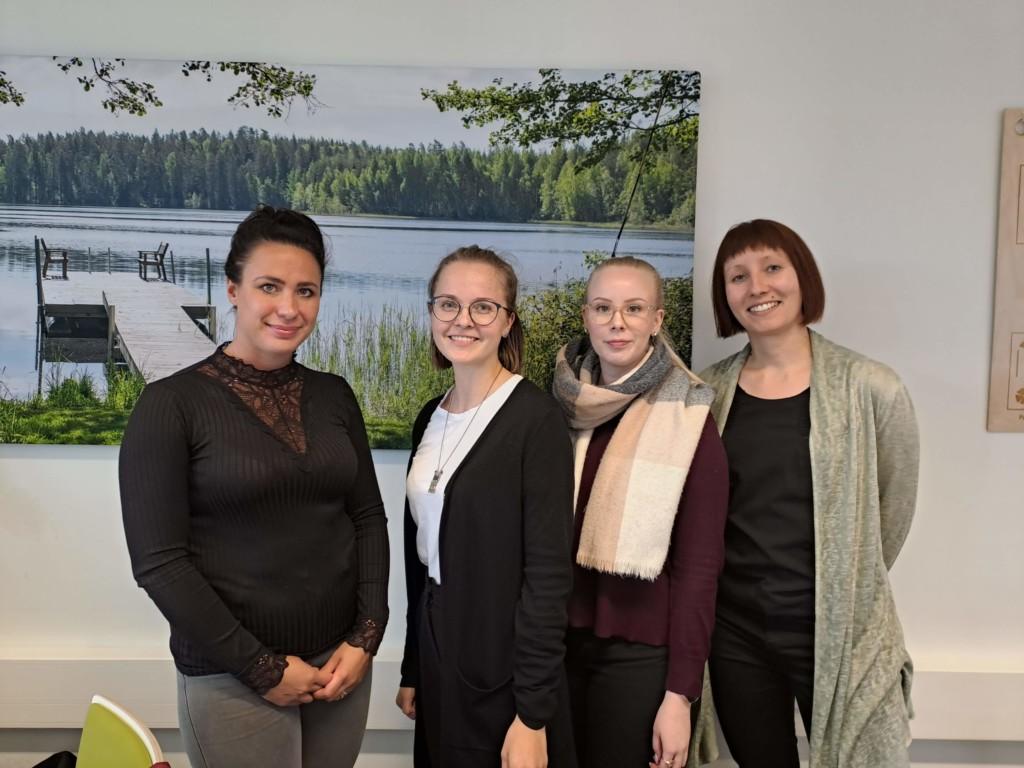We are pleased to introduce our student challenge in Zambia in this blog but first let’s introduce our team. We are four students representing HAMK in this collaborative challenge with Aalto, Mulungushi and University of Zambia.
Janika is a second-year student of Bioeconomy Engineering. She has just started studies and this year she is taking the bioeconomy mandatory courses. Next year she has an opportunity to select studies what she is interested in. She is interested in climate change and circular economy. Bioeconomy education makes it possible for her to think about her interest from the perspective of digitalization. She is interested in how digitalization can help to create new innovations to circular economy.

Hi, I’m Leena. I started last year as a sustainable development student at HAMK, and on track to graduate at the end of year 2022. Last summer I graduated from Aalto University School of Business. Currently, I works full-time as a Sustainability Specialist, and I am interested in climate change adaptation and circular economy.
I’m Anni, a fourth-year sustainable development student and I plan to write my thesis and graduate in the spring of 2023. I am interested in Corporate Responsibility and Circular Economy. I am qualified nurse and worked in this field for a few years before coming back to study in my current degree programme.
Hello, I am Jaana, the last one from our team for this Challenge. I am a third-year sustainable development student, interested in circular economy, waste and wastewater management as well as climate change mitigation and biodiversity loss. I currently work as an environmental inspector in my place of domicile and already hold a degree in Business Administration.
Now to the task ahead of us!
The challenge our team is working with is Digitalizing Cooking in Rural Africa by Afstor Oy. The company have an innovative product named Afstor Solar Home and Cooker System.
- The cooker is a photovoltaic system which includes an induction stove, solar panels, integrated battery, LED-lamps and a patented hourly operating and CO2 measurements equipment for providing internet access as well as CO2 tracking website.
- The cooker reduces use of firewood and charcoal for cooking, improves possibilities for education especially for children in rural areas by reducing time used for finding firewood, electrification, and digitalization.
- It creates possibilities for the establishment of small businesses through digitalization.
When the cooker is made available to a family or community, they participate in tree growing via Afstor’s partner Green Living Moment. The company endeavours to improve living standards in rural areas of Africa as well as to mitigate climate change. The product is currently being piloted in some parts of Zambia.
For us, our task is to explore improved; education opportunities for children, conditions for new businesses and services for farmers as well as to promote other potential exploitations for the cooker.
There are four Universities participating in the project are Hämeen University of Applied Sciences, Aalto University, University of Zambia, and Mulungushi University. We met our Aalto University colleagues in Hämeenlinna during face-to-face team building day. During that day we got to know each other a little bit and started to brainstorm how the cooker could be utilized in rural Africa. We have had the opportunity to meet our Zambian colleagues twice via ZOOM. During those meetings, Finnish students and Zambian students presented their ideas and points of view. We also got precious information about the local conditions in rural Zambia.
Our team is eager to work with the challenge further and expand our knowledge about local conditions and way of life in Zambia to create sustainable solutions to serve the target group and the client best. Read more on project https://www.pbl-bioafrica.net/
